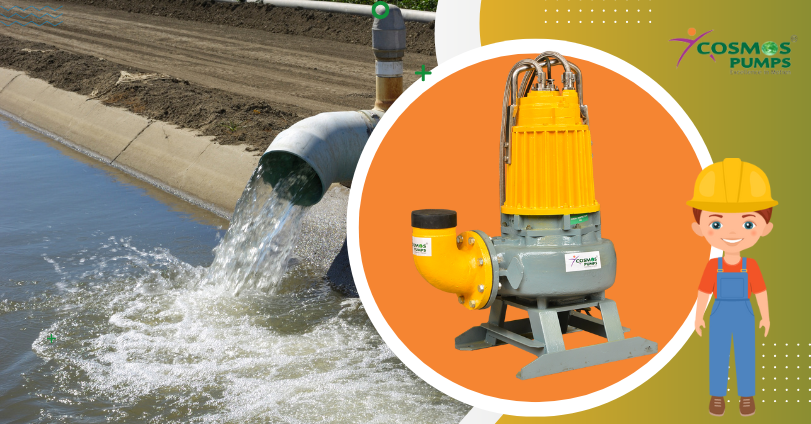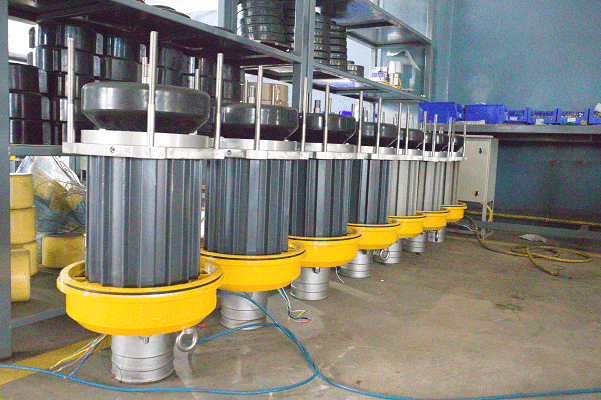
Priyanka Gunglani
11-08-2023
In wastewater management, sewage dewatering pumps play a pivotal role in maintaining the cleanliness and hygiene of our urban environments. These unassuming yet powerful devices are designed to handle the challenging task of removing excess water from sewage, allowing for efficient treatment and disposal. However, despite their critical importance, there are several misconceptions that persist about sewage dewatering pumps. In this blog, we’ll address and debunk five common misconceptions surrounding sewage dewatering pumps, shedding light on the vital role they play in keeping our communities clean and healthy.
Misconception: All Pumps Are the Same
Contrary to this belief, sewage dewatering pumps come in a variety of types and configurations, each tailored to specific applications. There are submersible pumps, which are designed to be submerged in water, as well as non-submersible pumps that are used for above-ground applications. Additionally, the capacity, power, and efficiency of these pumps can vary greatly based on the manufacturer and specific requirements. When seeking a dewatering pump in Hyderabad or any other location, it’s crucial to understand the specific needs of the project and select the appropriate pump accordingly.
Misconception: Dewatering Pumps Are Only Used in Emergency Situations
While sewage dewatering pumps are indeed valuable during emergency situations such as floods, their primary purpose extends beyond crisis management. These pumps are frequently employed in routine maintenance, construction projects, and sewage treatment plants. By efficiently removing excess water from sewage, these pumps ensure that treatment processes are more effective and that infrastructure remains operational and efficient
Misconception: Pump Size Doesn’t Matter
The size of a sewage dewatering pump has a direct impact on its performance and efficiency. Choosing the wrong pump size can lead to increased energy consumption, decreased effectiveness, and premature wear and tear. A pump that is too small may struggle to handle the required volume, while an oversized pump can waste energy and lead to unnecessary expenses. Partnering with experts, such as Cosmos Pumps, can help in accurately determining the appropriate pump size for specific applications.

Misconception: Maintenance is Optional
Some operators may underestimate the importance of regular maintenance for sewage dewatering pumps. Just like any mechanical system, these pumps require routine inspection, cleaning, and servicing to ensure optimal performance and longevity. Neglecting maintenance can result in decreased efficiency, higher operating costs, and even pump failure. Investing in a comprehensive maintenance plan can prevent costly downtime and extend the lifespan of the pump.
Misconception: Pump Selection is a One-Time Decision
As wastewater management needs to evolve and technologies advance, it’s important to recognize that pump selection is not a one-time decision. Factors such as changing regulations and technological innovations can impact the effectiveness of existing pumps. Regularly reassessing pump performance and exploring opportunities for upgrades can lead to more efficient and cost-effective wastewater management solutions.
Conclusion:
Sewage dewatering pumps are the unsung heroes of wastewater management, facilitating the proper treatment and disposal of sewage to safeguard public health and the environment. By dispelling these misconceptions, we can gain a deeper appreciation for the critical role that these pumps play in maintaining clean and sustainable communities. Whether in Hyderabad or any other location, understanding the intricacies of sewage dewatering pumps and partnering with knowledgeable professionals like Cosmos Pumps ensures that our sewage systems operate smoothly and efficiently, contributing to a healthier and more sustainable future.
- Categories
- Dewatering Pumps (23)
- News (1)
- Submersible Pumps (14)
Latest Post
- Applications, Features, and Selection Tips for Submersible Dewatering Pumps
- Knowing And Choosing Dewatering Pumps For Mines
- Key Considerations for Submersible Pump Selection
- Advantages and Disadvantages of Submersible Pumps
- Dewatering in Dubai: How to Optimize Water Control for Construction Projects
- Cosmos Pumps Introduces The Giant Dewatering Pump